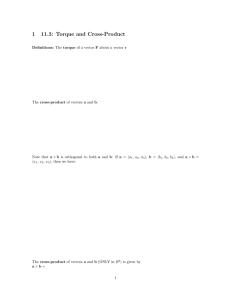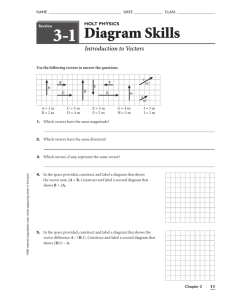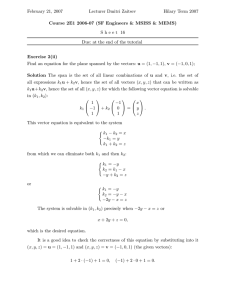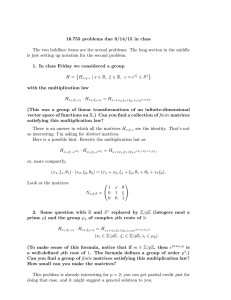Section 9C – Vector Addition and Subtraction
advertisement
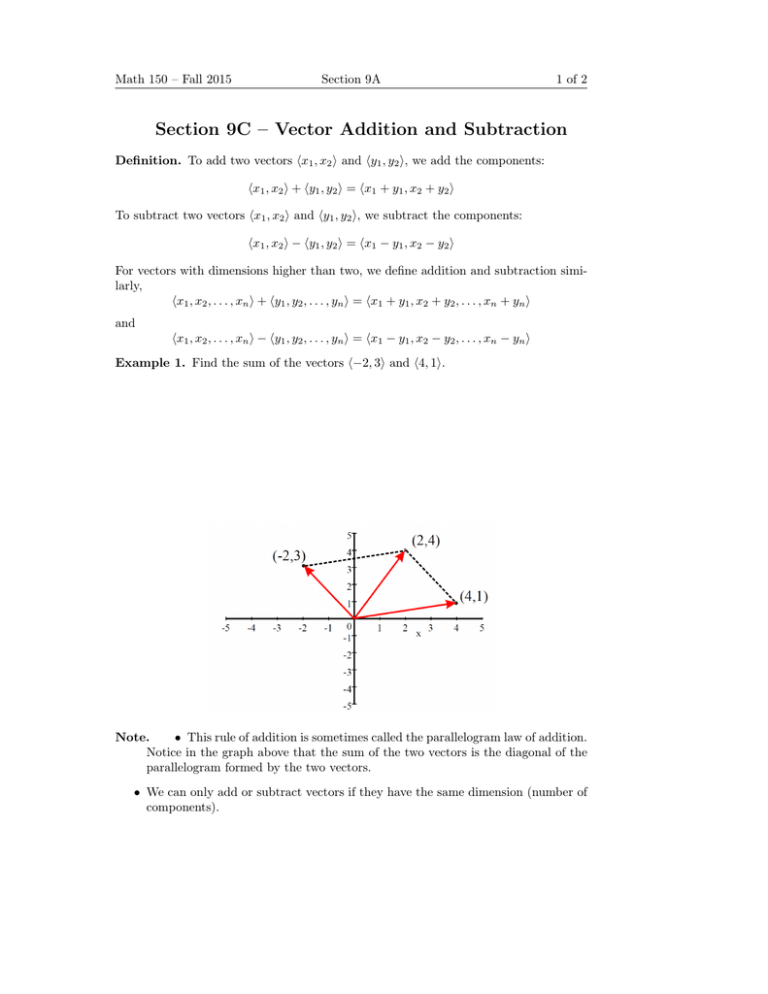
Math 150 – Fall 2015 Section 9A 1 of 2 Section 9C – Vector Addition and Subtraction Definition. To add two vectors hx1 , x2 i and hy1 , y2 i, we add the components: hx1 , x2 i + hy1 , y2 i = hx1 + y1 , x2 + y2 i To subtract two vectors hx1 , x2 i and hy1 , y2 i, we subtract the components: hx1 , x2 i − hy1 , y2 i = hx1 − y1 , x2 − y2 i For vectors with dimensions higher than two, we define addition and subtraction similarly, hx1 , x2 , . . . , xn i + hy1 , y2 , . . . , yn i = hx1 + y1 , x2 + y2 , . . . , xn + yn i and hx1 , x2 , . . . , xn i − hy1 , y2 , . . . , yn i = hx1 − y1 , x2 − y2 , . . . , xn − yn i Example 1. Find the sum of the vectors h−2, 3i and h4, 1i. Note. • This rule of addition is sometimes called the parallelogram law of addition. Notice in the graph above that the sum of the two vectors is the diagonal of the parallelogram formed by the two vectors. • We can only add or subtract vectors if they have the same dimension (number of components). Math 150 – Fall 2015 Section 9A 2 of 2 Properties of the Algebraic Operations Theorem. The following properties hold for vector addition and scalar multiplication ~ Y ~ , and Z ~ are vectors in the same vector space Rn . Both α and β are scalars. where X, ~ +Y ~ =Y ~ +X ~ 1. X ~ +Y ~ +Z ~ =X ~ + Y ~ +Z ~ 2. X ~ +Y ~ = αX ~ + αY ~ 3. α X ~ = αX ~ + βX ~ 4. (α + β)X ~ = X. ~ 5. 1X Example 2. Compute the following vectors. (a) 3h4, −2, 7i − 4h8, 5, 3i (b) h5, 6i − 5h−2, 4i − 5h2, −2i Theorem. The vector hx1 , x2 i can be written using the special vectors ~i and ~j as hx1 , x2 i = x1~i + x2~j For three dimensional vectors, we have hx1 , x2 , x3 i = x1~i + x2~j + x3~k Example 3. Write the following vectors in terms of the ~i, ~j, and ~k vectors (a) h9, 7, −11i (b) 5h−3, 2i − h9, 8i + 3h1, 4i

